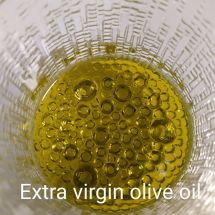The Impact of Olive Oil and Mediterranean Diet on the Prevention of Cardiovascular Diseases
Main Page > Home Kitchen SiriSiri > The Impact of Olive Oil and Mediterranean Diet on the Prevention of Cardiovascular Diseases

The Impact of Olive Oil and Mediterranean Diet on the Prevention of Cardiovascular Diseases
Written By
Muhammad Akram, Rumaisa Ansari, Naheed Akhter, Olutosin Ademola Otekunrin, Sadia Zafar, Muhammad Ishaque, Naveed Munir, Luigi Sciarra, Giulia My, E.C. Gianvito Matarrese, Zefferino Palamà and Muhammad Riaz
Submitted: 13 January 2021
Reviewed: 10 March 2021
Published: 29 March 2021
DOI: 10.5772/intechopen.97146
Impact of olive oil consumption on human health:
It has been revealed from the studies by The Global Burden of Disease that the rate of incidence of chronic illnesses such as cardiovascular diseases including coronary artery disease and hypertension have been persistently increasing. It has been revealed that this increase in the rate of these diseases is most likely related to the adoption of unfavorable behaviors and unhealthy dietary patterns. Therefore, the protective qualities of certain dietary patterns such as Mediterranean diet especially its certain components such as olive oil has been studied and evaluated for their beneficial effects on human mortality and morbidity. Olive oil is noted to have anti-bacterial characteristics, involved in improving the endothelial function in young females, and it has been hypothesized to have epigenetic effects interplay offering protection from cancers due to the presence of healthful monounsaturated fats. The presence of antioxidants contributes to the anti-inflammatory properties of the olive oil. Olive oil has high quantities of antioxidants and offers numerous benefits for cardiovascular health, such as protection of LDL from oxidation and lowering of the high blood pressure as well as offers protection from diabetes mellitus.
Conclusion:
It has been concluded from studying the mechanism responsible for lowering the cardiovascular risks that food combinations, food nutrients, presence of non-nutritive substances, lifestyles habits and the cooking techniques all together make the Mediterranean dietary pattern into a tool that can not only prevent but can also be used as a way of treatment for these medical ailments. As part of the essential dietary fat, consumption of extra virgin olive oil is the main feature of Mediterranean diet. Olive oil possess anti-bacterial properties, involved in improving the endothelial function in young females. It has been hypothesized that the olive oil has epigenetic effects offering protection against cancers due to the presence of monounsaturated fats. The presence of antioxidants contributes to the anti-inflammatory properties of the olive oil. Olive oil has high quantities of antioxidants and offers numerous benefits for cardiovascular health, such as protection of LDL from oxidation and lowering of high blood pressure. Various studies have shown that the intake of olive oil offers cardioprotective properties contributed by the high poly phenolic content as well as the presence of antioxidants and its curative effect is not limited to primary prevention, but also to secondary prevention in unexpected fields such as in the treatment of cardiac arrhythmias. Olive oil has many biological activities due to the presence of many important secondary metabolites such as antioxidant and other useful bioactive components that suggests the future use of olive oil in pharmaceutical preparations in pharmaceutical industries.
